The Skyhawk (1974)
Directed by: Jeong Chang-hwa
Written by: Fang Yeh
Starring: Carter Wong, Chao Hsiung, Kwan Tak-Hing, Nora Miao
HONG KONG
AKA HUANG FIE HONG XIAO LIN WUAN, WONG FEI HONG: SHAOLIN FIST
AVAILABLE ON BLU-RAY. NOW, from EUREKA ENTERTAINMENT
RUNNING TIME: 90 mins
REVIEWED BY: Dr Lenera
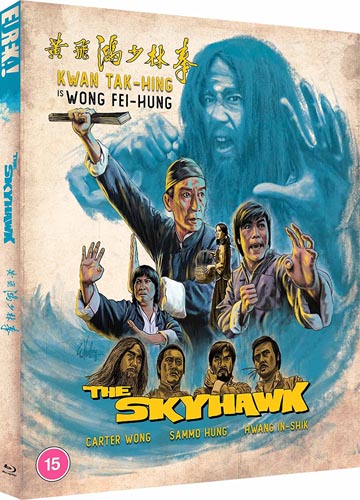
In Bangkok, Kwangtung boxer Wong Fei-hung, The Skyhawk, rescues Hsiao Shih-tzu, a young man who fights off five thugs only to be wounded himself. The Skyhawk attends to his wound at Chu Kuei’s home. Meanwhile, Bad man Ku Chung wants to take over the local pier, but many of the workers have Chu as their boss. As a result, Ku tries to fan up trouble. Then, at a dinner party, Yu-ying, sister of The Skyhawk’s student Fatty, complains to The Skyhawk that her husband Wei Wen, has become addicted to heavy gambling in places run by Ku. As trouble brews, Hsiao asks Wong to teach him….
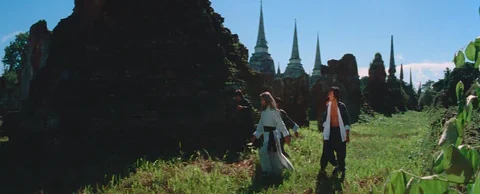
The Chinese folk hero Wong Fei-hung’s public fame at the time of his existence was largely as a physician who practiced and taught acupuncture, though of course for the movie that became supplanted by his martial arts expertise which is much more exciting. I can’t seem to find out from the limited information at my disposal [I’m sure one of the experts on this disc’s audio commentaries will know] how well this 1974 movie from Golden Harvest did at the box office, but I’m sure that it must have been a big deal for those who did go to see it, because it saw Kwan Tak-Hing, who’d played Wong in no less than 68 films beginning in 1949, return to the role, even though he was now too old to do all of his moves and was obviously doubled not just for the usual flips and jumps but during the more strenuous parts of his fight sequences. This provides an interesting conflict in the film; Wong’s Confucian ethics, which insist that fighting should be avoided, clashing with the trend toward exaggerated violence in the Hong Kong kung fu movie which usually tells us that defending yourself and others is necessary and that revenge is an honourable thing that should be carried out. This conflict is never properly resolved, but it adds just a bit of depth to what is essentially a fairly good but not really notable entry in the genre. Making the very most of its Thailand setting with lots of shots of its distinctive architecture both ruined and in good condition, some of which may seem familiar to those who’ve seen the first Mortal Kombat, and also reminiscent of The Big Boss in places, The Skyhawk is often very pleasing on the eye while its plot is relatively involved and even provides the odd surprise, but there’s some sloppiness here and there, and the fight scenes, which come thick and fast, are all pretty much on the same level; fairly good, but not exactly memorable despite the presence of Bruce Lee and Jackie Chan opponent Whang In-sik [playing a character called Whang In-sik] who does get some opportunities to shine but seems generally a bit reined in.
Five men running towards the camera is the somewhat strange opening shot; they’re running after our hero Hsiao Shih-tzu for his money. Hsaio sure is capable of defending himself, but is outnumbered. Wong and his current student Leo Hsiao Sze-Tun aka Fatty are passing by, but don’t need to intervene. The attackers flee to be told off by their boss Whang in-sik – “None of you are any damn good“, as well as being hit by him. As you’ll have expected if you’re used to reading my reviews of traditional martial arts movies, I’m watching the English dubbed version which typically adds some mild swearing that isn’t in the Mandarin language version if the subtitles are anything to go by [ in fact there’s a strange aspect to the English subtitles on this disc but I’ll get to that later]. Another fight, and a totally gratuitous [even the standards of this genre] one where Wong and Fatty see off some bandits, including Mars and Lan Ching-yin] takes place until we eventually get to the credits, where we have some nice intercutting of three sets of characters [well two sets and one person] along with much showing off of the locale, until Hsiao is attacked by the same villains, this time with Whang, who’s much better at fighting than the others. He floors Hsiao, but then Wong and Fatty come along and the nasties retreat. Wong pours some medicine down Hsaio’s mouth, then the two take him back to Wong’s current residence – and then we cut to a fourth fight, this time a mass battle between two groups of dock workers. The fight is taking place between men under Ku, the old boss, and men working for Chu, who’s trying to take over the whole area. Chu offers Ku a lot of money to roll over, but Ku doesn’t want to do so. Meanwhile Wong is welcoming a friend who’s soon to be 60, and Hsiao immediately gets the admiration of Hsiang Lan. It’s lovely seeing Nora Maio give the same smile, as she watches him, that she did to Bruce Lee in Way Of The Dragon, though despite then looking longingly at each other at dinner, no romance takes place here either, only a wonder about with Fatty as well.
Chu soon shows how nasty he is by having men tied to logs while an anachronistic log-cutting device is making its way towards them to get them to obey his wishes. Meanwhile Fatty’s training seems to be going well – one of the highlights of this film must be when Kwan and Hung are sparring and doing moves together. Two martial arts legends of different generations, one in the twilight of his career, one with his career just gaining traction, together showing what they can do, and Kwan can still do a lot, even if in other scenes editing becomes invaluable in his character completing moves and techniques. Hsaio also wants to learn from Wong, but when he trains with Fatty he’s too agressive, injuring his shoulder. One almost expects Fatty to become annoyed at him and the changed situation and go over to the other side, though this doesn’t happen, the two then seen on the street trying to make money off poor locals selling these patches that aid with injuries in the film’s one real comic sequence despite the presence of Hung, a scene which is actually rather out of place and doesn’t lead to anything at all. We don’t even get Wong’s reactions to what his students are getting up to. However, its inclusion does mean that we get to see Hung’s expertise with the bo staff with some incredible twirling, so there is that. While this is going on restaurant Wei Wen has become addicted to gambling. Obviously it’s Ku who now runs the local gambling joint, and we know how easily dice can be loaded. Wei’s wife Yu-ying tries to help, and I’m sure you can predict how things are doing to develop with her, though that element isn’t allowed to go too far because we have to have a fight sequence every few minutes. Meanwhile back at the docks workers are going over to Ku, so things are getting bad all over, but Wong doesn’t want to fight, even when hot water is poured over him in another highlight where Whang tries so get him to lose it, then smashes stuff in frustration.
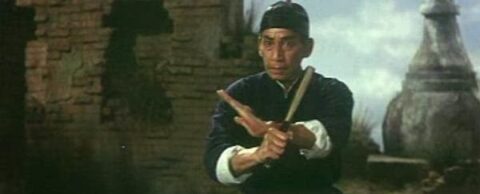
It’s easy for the viewer to feel that Wong’s attitude isn’t the right one, especially when Wong even goes so far as to apologise for the behaviour of Hsaio and Fatty, even though they were either not the aggressors or were attempting to rescue someone. Fang Yeh’s script really sets up this conflict but then ignores it as Wong eventually comes out to fight when things have got so awful that even he can’t ignore it. I suppose this is how the story had to go – audiences would have felt cheated otherwise – but we don’t really get any sense of a change and his regret that he finally engage in combat. Despite this, we still expect him to say something profound after all the bad guys have been killed, but this doesn’t happen either. The many fights usually have Wong and Hung battle various bad guys; there’s a fairly good one early on where they face against a villain each, but it’s mostly decent fare without real flair, and all are pretty short too. Of course the quality does go up a notch whenever Whang, looking exactly like he did six years later in The Young Master, is onscreen, and it’s hard to believe that either Wong or Hung can finally beat him. In the end it’s Kwan who gets the final fight with him while Wong battles Ku, though it’s also a short brawl and Kwan has the upper hand most of the time. never seeming in danger, though then again we don’t complain about this is Bruce Lee movies. His sheer presence makes up for the frequent doubling, though even the latter is done well, the double seeming to look like him. Kwan would go on to play an elderly Wong again in Magnificent Butcher and Dreadnaught, though his role was smaller in both. Carter Wong, in an early leading part, has a bit of screen presence and fights well with his top half but not his bottom; his footwork is clumsy [that would improve in later films]. As for Hung, he gets to sing a song in a restaurant but isn’t the goofy Hung we’re used to; that came a few years later. He doesn’t possess much of that tremendous power he’d soon do either, though his rhythm is already there. The lovely Maio is a bit wasted as usual.
The bad guys seem to get up to anything bad Yeh could think of; fixed gambling. racketeering, murder, drug smuggling, forced prostitution. They’re so nasty that they’ll sell kidnapped women to the Japanese but will have their way with them first so that the Japanese get “second hand goods”. The story is sometimes clumsily put together; at one point somebody’s trying to find out who’s behind some killings even though it surely ought to have been very obvious. then throwing a knife at someone in a silly moment where the knife hits the man’s back, then we cut to a stuntman falling backwards into a pond. The most baffling thing about The Skyhawk is the plentiful footage of people in 1974 garb despite it supposedly being set way before that; it’s weird that the filmmakers either didn’t seem to care or assumed that viewers wouldn’t care either. However, Korean director Jeong Chang-hwa, perhaps to make up for a budget which may have been low even by the standards of this genre, employs a lot of style in this movie, clearly influenced by Sergio Leone had a hand in it, from the way three bad guys loom into the frame to the closeups during showdowns. Some bloody kills are well handled too, achieving maximum effect despite not dwelling on the gore. Joseph Koo’s musical score doesn’t sound like the Koo sound and style we’re used to from later films he worked on, but his chief dramatic theme and tender “love” theme are likeable enough. The bad guys are often backed by Japanese percussion, which is odd, but never mind. That 1814 tune that became associated with Wong, and which therefore has to appear in every Wong film, often turns up beginning with the credits, though with some variation after the opening few bars.
The Skyhawk is a slightly odd mixture of good, bad and the average, but is nonetheless never less than entertaining, and sometimes that’s what counts most, especially in this genre.
SPECIAL FEATURES
Limited Edition O-Card slipcase featuring new artwork by Darren Wheeling [2000 Copies]
1080p HD presentation on Blu-ray of the original Hong Kong theatrical cut from a brand new 2K restoration
For the most part, the quality is what we’ve come to expect from these restorations; lots of sharpness, depth, even grain and vivid colour but with no “enhancements”. However, the grain is some shots here is much heavier than normal, and may be a little distracting for some viewers. However, it’s probably worth remembering that this movie has still probably never looked better.
Original Mandarin mono audio
Cantonese and English audio options
While I mostly listened to the English version, it was obvious that the audio for this film was in bad shape. The music often almost sounds distorted and parts of the dialogue can barely be heard. I’m sure that Eureka did the best with what they were given, of course.
Optional English Subtitles, newly translated for this release
Curiously enough, the subtitles for the Cantonese and Mandarin language version differ. Were they translated by two different people?
Brand new feature length audio commentary by Asian film expert Frank Djeng (NY Asian Film Festival)
Djeng, who went to the same primary school as Maio, begins this track by answering one question I had; how well The Skyhawk did at the box office. And soon after that he explains the title and why Wong is called The Skyhawk in this film; it’s all because Wong’s name translates as Skyhawk in English. Djeng also has a theory about the switch to studio filming. He didn’t need to do potted bios, at least two not for the first time, but he keeps them quick. This is a typically good track from him with no signs of weariness.
Brand new feature length audio commentary by action cinema experts Mike Leeder & Arne Venema
Leeder and Venema are on fine informal form, be it dishing out information of the oddest kind like Thailand making more of an effort wth packaging marijiana than Hong Kong, to Kwan being the face of safe sex in Hong Kong, providing insight such as agreeing with me about Golden Harvest not seeming to know what to do with Maio, to jokey exchanges with lines like “Venema has no respect for me, yet he has respect for other older fighters”. Leeder talks noticeably more than Venema, a bit more than is usual these days, but this is still another fabulously entertaining track.
Selected scene commentary with Blade Po, film critic and Research Director at the Hong Kong Film Archive [20 mins]
Playing over sections of the film, this has Djeng ask Po questions about the film which is rightfully described as “transitional” and, unusually for the time, had to be dubbed into Cantonese because Kwan spoke in certain way while playing Wong. Apparently a Golden Harvest shareholder had share in Thailand which is why a lot of their films were shot there. We also learn that a lot of things were rehashed from Earlier Wong films.
Trailer
Reversible sleeve design
A Limited Edition collector’s booklet featuring new writing by James Oliver [2000 Copies]
“The Skyhawk” is hardly a classic, but fans will find enough to enjoy and appreciate anyway. Recommended!





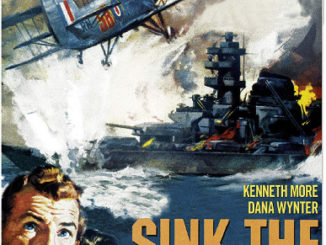
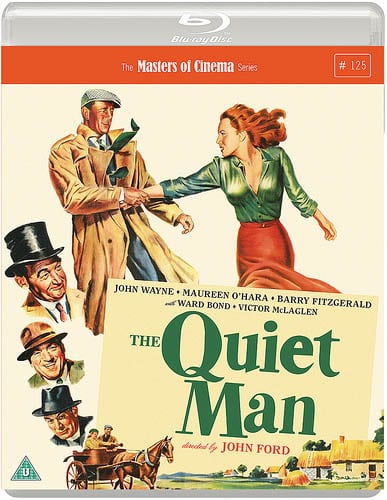
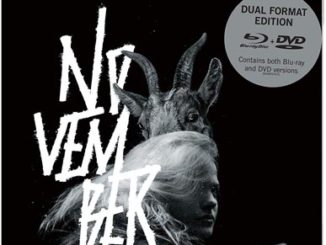
Be the first to comment